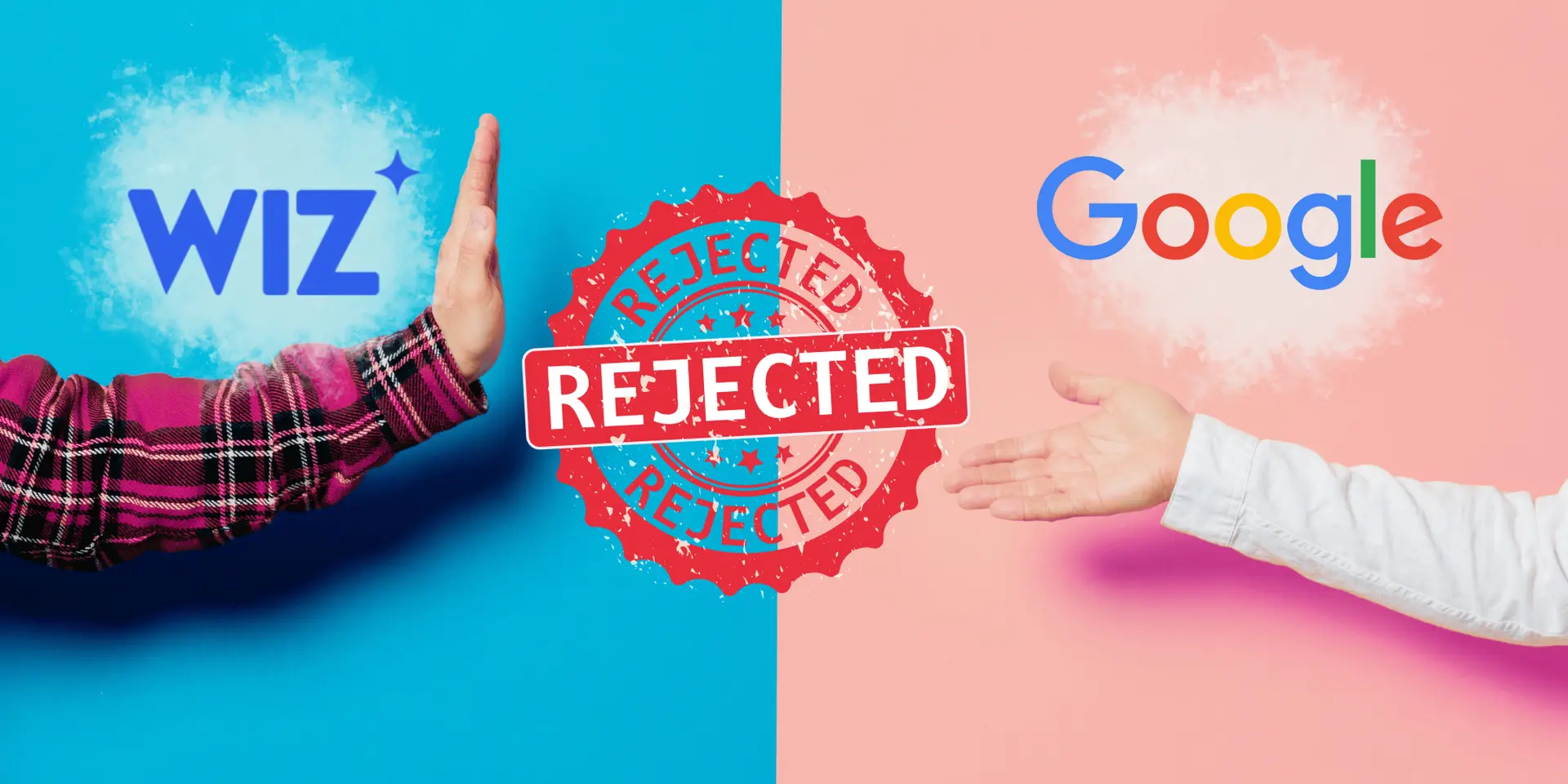Why Wiz rejected Google’s $23 billion acquisition offer
Here is why Wiz CEO Assaf Rappaport turned down a $23 billion acquisition offer from Google.
In the ever-evolving landscape of tech startups and corporate acquisitions, big billion deals often dominate headlines. One recent story that caught attention was when Wiz, a cloud security company decided to turn down a staggering $23 billion acquisition offer from Google!
In an industry where valuations can skyrocket overnight, such a rejection raises eyebrows and sparks questions about the strategic vision behind it. In a conference, Wiz CEO Assaf Rappaport shared his insight into this bold decision. So, let's understand the reason behind this calculated approach for Wiz's long-term growth.
Why Rappaport rejected a $23 billion deal from Alphabet

Assaf Rappaport’s decision to decline the acquisition was driven by a clear vision for Wiz’s future. According to the CEO, the company is on a rapid growth trajectory and aims to pursue an IPO.
With an opportunity to become a $100 billion cloud security company, Assaf believes that remaining independent will allow Wiz to explore its full potential. By maintaining independence, Wiz can focus on its long-term objectives without the constraints that often come with being part of a larger organisation.
Rappaport’s stance is not just about financials; it reflects a deeper philosophy about the value of agility in a fast-paced industry. More importantly, being a standalone entity allows Wiz to quickly grasp customer needs and market dynamics. This is crucial in the tech landscape where changes occur at lightning speed.
Big vision and company culture
Another critical factor in Rappaport’s decision was to hold Wiz’s company culture. After all, integrating into a larger corporation could dilute the unique culture that has fueled Wiz’s success so far.
Rappaport acknowledged that while the financial offer was compelling, it did not align with the long-term goals he envisions for Wiz. He believes that the company's potential is not merely tied to its current valuation.
At the time of Alphabet's acquisition offer, Wiz had a valuation of $12 billion after raising $1 billion in Series E funding round this year.
Will Wiz win the cloud security game?
A 2023 report by Cybersecurity Ventures reveals that global cybercrime costs are expected to reach $10.5 trillion annually by 2025. This unveils the need for robust cloud security measures.
Wiz's CEO Rappaport has also highlighted that the cloud security market has a substantial market size. Moreover, companies are increasingly investing in cloud technologies, making robust security measures a priority to avoid events such Internet Archive's outage.
Wiz also aims to capitalise on this growing demand by developing new features and solutions that can address the emerging challenges in cloud security. By rejecting Alphabet's acquisition offer, Assaf is positioning Wiz not just as a player in the cloud security sector but as a potential leader.
His belief in the company’s hard work and market potential suggests that he anticipates greater opportunities ahead, particularly as businesses transition to cloud infrastructures.
The bottom line
Wiz’s refusal of a $23 billion acquisition offer emphasises a critical theme in the tech industry: the importance of vision, culture, and long-term growth over immediate financial gain. As the cloud security market continues to expand, Wiz’s leadership could be defined by the choices made today. This bold move serves as a reminder that in the tech world, sometimes the best deals are the ones you don’t make.




